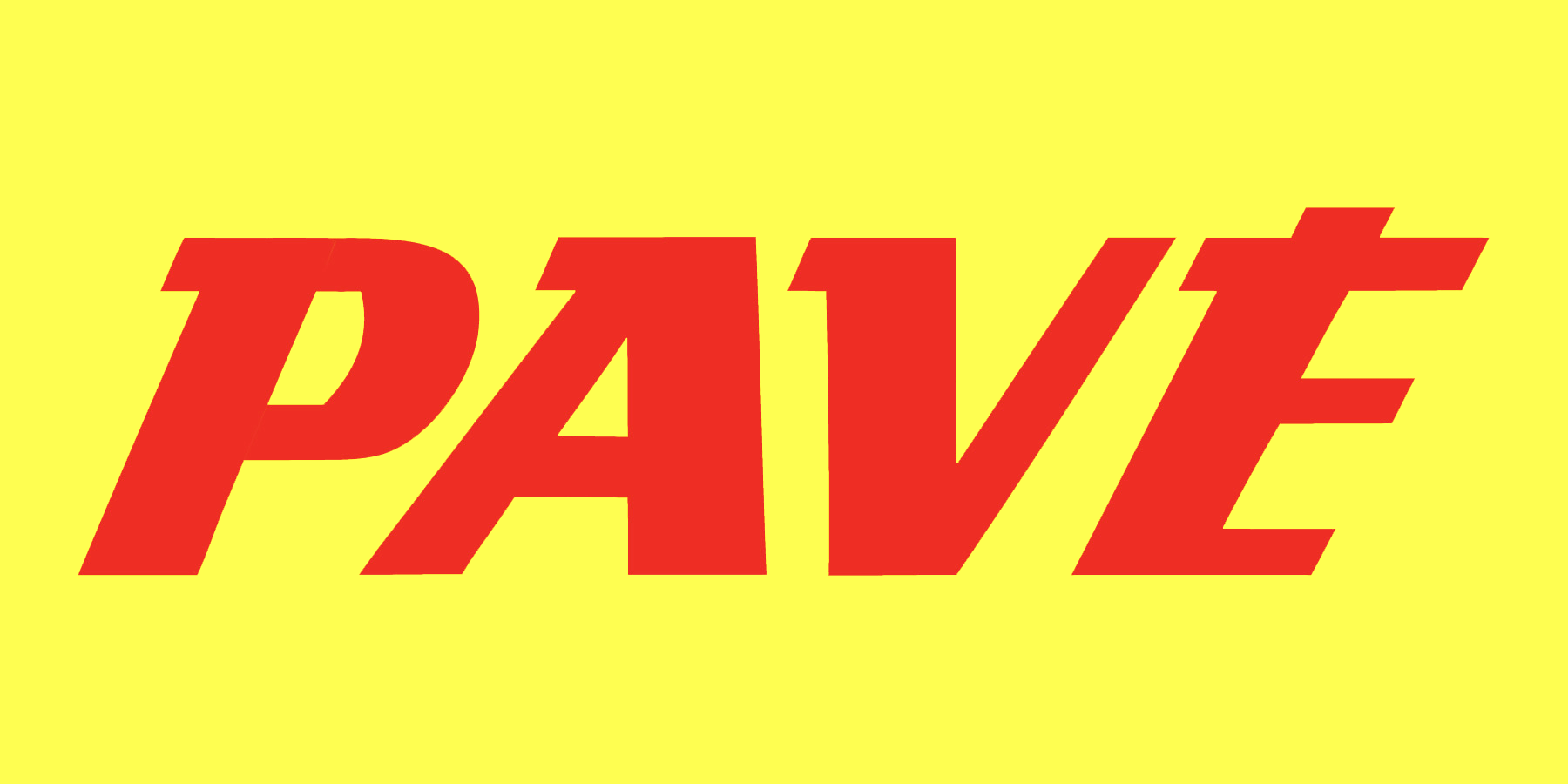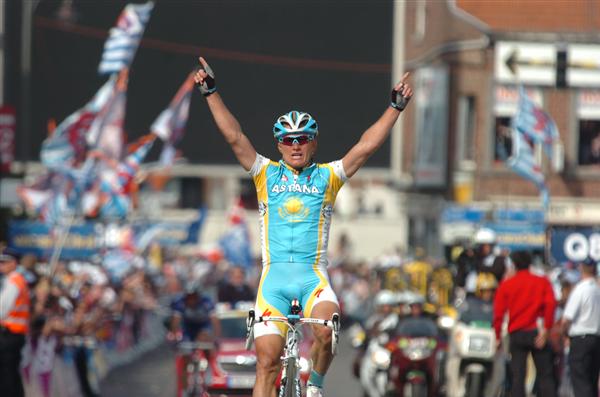#4 – Astana – (Preview Ranking: #7)
What We Said:
Another team that benefits largely from the presence of one man is Astana with Alberto Contador. Like compatriot Alejandro Valverde, Contador is a favorite in any race he enters—particularly if it has at least one summit finish, and one mid-length time trial. Like Valverde, Contador’s already won his first this season, and appears headed to yet another title in the Tour.
When first ordering my teams for this project, I noticed several teams between Astana and Radio Shack. They appear quite similar, yet Astana is much further ahead in the ranking. Why? Because Contador will likely win the Tour and Armstrong will struggle to finish inside the top-10. Regardless of how a team performs in other races, a win in the Tour is an impressive result, and Astana cannot be taken lightly just because it appears one-dimensional.
But is Astana one-dimensional? Not really. Contador’s already won a race and will certainly win others before July. And even though he annoys the heck out of us, Alexandre Vinokourouv should be good for a win or two at some point in the season—maybe he’ll even win the Vuelta. Enrico Gasparotto won several races with Barloworld before falling into a bit of an obscure period; he has talent enough to win a race or two in Italy this season. And there’s Allan Davis as well, although I can’t help but wonder why he has such trouble finding teams willing to acquire his services.
But in the end, while other wins might come in, it’s all about the Tour for Astana. A win, and they’ve justified my high ranking. A loss—or worse—and several of them might be looking for new jobs in 2011.
Man of the Hour: It’s all about Contador and his bid for another Tour title. If he can win again—with the support of a completely re-designed team—he’ll affirm his place as the most talented Tour rider since Lance Armstrong.
On the Hot Seat: I am—for ranking Astana 7th. It’s a risky move to put such a scandal-ridden team ahead of teams such as Rabobank, Caisse d’Epargne, and maybe even Radio Shack. Hopefully they’ll win enough races to make me look smart!
Up-and-Comer: Good luck answering this one, as the rest of Astana’s roster is filled with veterans hoping for a new lease on life and Kazakh neo-pros. If they’re lucky, maybe one or two will turn-out to be something worth keeping.
Best Pick-Up: Specialized jumped at the chance to win a Tour, jettisoning Quick Step to sign Contador and then the rest of his team. A Tour winner needs more than just the support of the other 8 men in the race and Specialized will do anything to see to it that Contador has the best material in the world.
Biggest Loss: Johan Bruyneel is the best director in the sport. Even though he was in Bruyneel’s doghouse for most of the race, Contador will surely miss his leadership and mid-race tactical decision-making.
What We Saw:
Astana began the 2010 season with a series of aggressive performances in southern France. Maxim Iglinsky finished second overall at the Med Tour, while his brother Valentin almost took a stage at the Etoile de Bessèges. But team’s account opened in earnest when Alberto Contador won a stage and the overall at the Volto ao Algarve in Portugal. It was impressive early season result for the Spaniard—especially since it came in his first head-to-head clash with many of his former teammates on Team Radio Shack. From there, the team split, sending squads to both Paris-Nice and Tirreno-Adriatico.
At Paris-Nice, Contador proved adept at learning from his mistakes, taking another title in the Race to the Sun to go with the one he earned in 2007.  Perhaps more importantly, he won the crucial fourth stage to Mende atop the Col de la Croix-Neuve—the final ascent of the Tour de France’s Stage 12.
Meanwhile in Italy, Maxim Iglinsky continued to enjoyed good form, winning Italy’s newest classic, the Montepaschi Strade Bianche, run over Tuscany’s legendary white, gravel roads. In doing so, Iglinsky added his name to a list of winners including Fabian Cancellara and Alexandre Kolobnev. At Tireeno-Adriatico, Enrico Gasparotto won Stage 5 and Iglinsky finished fourth overall. As a result, both riders earned mention as outsiders for Milan-San Remo—they finished with the leading group, Iglinsky in eighth and Gasparotto in thirteenth.
At the cobbled classics, the team continued to ride aggressively, led once more by Iglinsky and Gasparotto. At Ghent-Wevelgem, Iglinksy made the leading breakaway, only to gap himself off the back while trying to skip a turn—he ended the day seventh. In the 3-Days of De Panne, it was Andrei Grivko’s turn to visit the podium—the Ukrainian finished second overall. A week later at the Tour of Flanders, Iglinsky continued his impressive run with an eighth-place finish in the Ronde. It’s too bad the squad was left uninvited to chose not to attend Paris-Roubaix as it would have been interesting to see how well they fared.
While Iglinsky and Gasparotto were rattling around the cobbles up north, Contador and several members of Astana’s prospective Tour roster were competing at the Criterium International and the Vuelta a Castilla y Lyon. At the Criterium, Contador suffered on the first day’s finish on the Col  d’Ospedale. He finished second in the Stage 3 ITT however, putting him in 15th overall at the end of the weekend. At Castilla y Lyon, Contador rebounded in an even bigger way, winning the final ITT in Ponferrada and taking the race overall as well.
Back north, the Amstel Gold Race was next. Enrico Gasparotto timed his sprint perfectly on the Cauberg to finish third behind Philippe Gilbert and Ryder Hesjedal. Three days later in Fleche Wallonne, Contador took third after launching his sprint too early on the Mur de Huy—arrogance or inexperience?  At Liege-Bastogne-Liege it was Contador’s teammate Alexandre Vinokourov (fresh from his win in the Giro del Trentino) who stole the show, escaping after the Côte de la Roche aux Faucons with Alexandre Kolobnev. The two withstood the charge of pre-race favorites Gilbert, Cadel Evans, and Alejandro Valverde, with Vino making short work of Kolobnev in the final kilometer to take his second win in La Doyenne. To top it all off, Vino started the Giro weeks later and wore the pink jersey for several days before finishing sixth overall—clearly the Kazakh was back.
In June, Contador returned to racing, choosing his traditional pre-Tour test in France’s Criterium du Dauphiné. As expected, he won the Prologue and held his lead until his surprising defeat by Janez Brajkovic in the longer ITT in Stage 4. Daniel Navarro took Stage 5—a pre-Tour “gift†from his captain perhaps—and Contador won Stage 6 on Alpe d’Huez. Unfortunately, El Pistolero was unable to shed himself of Brajkovic on the Alpe’s many hairpins—he finished the Dauphiné in second-place behind the Slovenian.
At the Tour de France in July (in case you were living under a rock), Contador defeated Andy Schleck to take his third title. But the Spaniard struggled more than in years past, winning by less than a minute in a victory that seemed aided by the mechanicals, crashes, and just plain bad luck experienced by his main rivals. Contador also failed to win a stage—Vino took the honors for Astana instead, winning Stage 13 into Revel.
And then—well, if there’s one knock against Astana it’s the fact that they failed to win a single race after the Tour de France (unless you count Valentin Iglinsky’s win at October’s Tour of Hainan).
It’s not as if they didn’t race either—they rode a full calendar. But with Contador home and dealing with his latest scandal—and Vino resting after what had already been a long and successful season, there just weren’t too many men left to carry the banner for the boys in baby blue and yellow. That said—Astana’s wins from February to July speak for themselves—at least until we hear otherwise.
Most Valuable Rider: Without Vino there is no Astana—literally, he more or less runs the team at this point. He wins races too. If that’s not valuable, then I don’t know what is.
Biggest Disappointment: Contador’s positive test for clenbuterol and the allegations surrounding his suspected blood doping have cast a dark pall over what was otherwise one of the most dramatic and exciting Tours in years. No matter the outcome of the investigation and appeal, the damage has already been done.
Biggest Surprise: Maxim Iglinsky was one of the most underappreciated classics contenders in 2010 with a win in L’Eroica to go with top-10 finishes in Tirreno, Milan-San Remo, Ghent-Wevelgem, and the Tour of Flanders. Only Paris-Roubaix is missing from his 2010 resume—Astana wasn’t invited didn’t attend.
And that’s it for #4 in our 2010 Team-By-Team Season Review. Next week we’ll round-out the top-3.
And as always, share your comments below (we like hearing from you).


Is there a no. 5?
There was, but for some reason it never went live. It's here: http://www.pavepavepave.com/2010/12/22/2010-team-by-team-season-review-5/
Thanks for pointing that out, Matt. No idea why it never posted as scheduled.
W.
Astana was automatically invited to Paris-Roubaix as a ProTour team but chose not to participate and gave their spot to another team. http://www.velonation.com/News/ID/3468/Astana-waives-Paris-Roubaix-invite-goes-to-Pro-Continental-team.aspx
Good call, Luke. Thanks for catching that!
W.